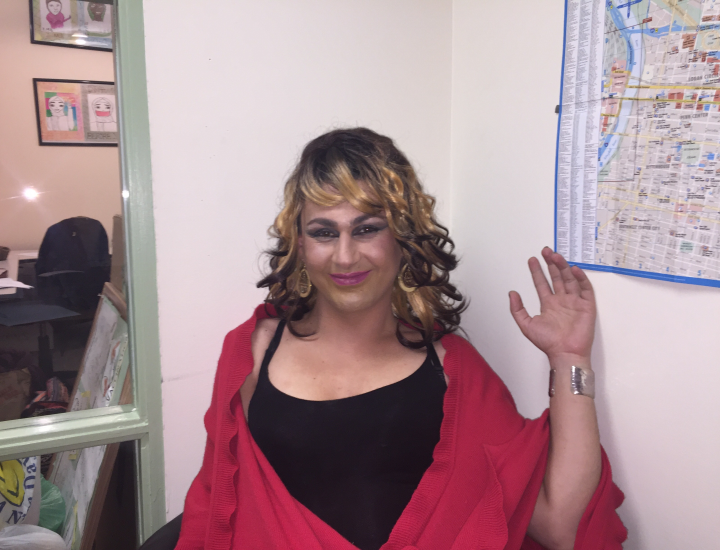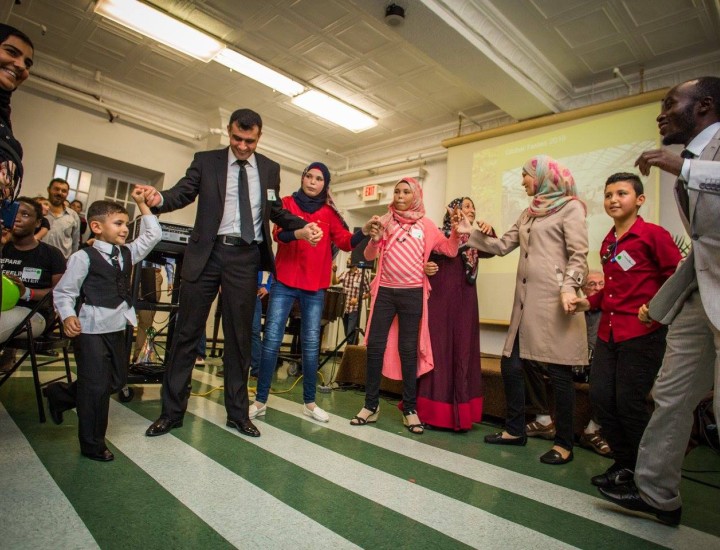Seeking Peace

On December 9, 2014, Aida and Mohammed arrived in the United States as refugees. They describe this date as their new birthday, the date on which they officially began their new lives in the U.S., the date on which they finally reached safety and relief from the fear of persecution.
Aida and Mohammed are a couple from Iraq who arrived in the U.S. in December 2014 as refugees. After being resettled by NSC, they were referred to NSC’s Philadelphia Partnership for Resilience program, which serves immigrant survivors of torture and assists them in accessing resources and establishing a better, more hopeful life in the United States. Since arriving in this country, the couple has experienced many challenges, but also many joys and successes, and they are proud to share how far they have come and how much they have learned. In order to show where they are now, Aida and Mohammed wish to share first the story of where they have come from, and what brought them to the United States. Their story is one of resilience and strength in the face of heartbreaking tragedy and loss.
The couple cites September 8, 2005 as the date that changed the course of their lives. On this day, Aida was kidnapped by armed militia members, sexually assaulted, and subsequently suffered an abortion as a result of the rape. Her husband had to pay a ransom in order for her to be released. Expected to obey cultural norms and traditions, Mohammed was ordered by his family and friends to abandon his wife, as she would no longer be considered a “pure” woman. His family gave him an ultimatum, forcing him to choose between them or his “tainted” wife. Mohammed, however, refused to do so, describing Aida as his love and his lifelong companion, no matter the circumstances, and the couple was thus forced to leave behind their business, their home, everything, in order to flee to safety in Syria. During their time in Syria, the couple and their daughters applied for refugee status through the UNHCR and were approved in 2011. However, due to Syria’s increasing unrest and violence, the family ran out of safe places to stay, and they were forced to go back to Iraq. When they returned, Mohammed’s immediate family members had filed a police report against him for having stayed with his wife after she was sexually assaulted, and eventually Mohammed’s family members forcibly took the couple’s three daughters away from them. Despite their significant efforts to find and reclaim their children, Mohammed and Aida were never able to reach them, and to this day they have neither seen nor heard from their daughters in three years. When they attempted to report this incident, Mohammed was beaten over the head by police, and Aida was verbally abused. Knowing that they could not access their daughters without risking additional torture and abuse at the hands of the police and threats from their own families, Mohammed and Aida decided to seek refuge in another country.
On December 9, 2014, Aida and Mohammed arrived in the United States as refugees. They describe this date as their new birthday, the date on which they officially began their new lives in the U.S., the date on which they finally reached safety and relief from the fear of persecution. Upon their arrival in this country, life was not always easy for Aida and Mohammed. They faced many challenges, including language barriers and differences in customs and traditions, along with the feeling that they were starting all over again in terms of learning how to go grocery shopping, how to schedule medical appointments, understanding American rules and laws, etc. They also faced many financial difficulties, in trying to manage a tight budget with limited financial assistance and seeking social security disability benefits due to many medical issues. While Aida was eventually approved to receive social security benefits after a months-long wait, Mohammed was initially rejected, and had to file an appeal to his decision, working over the course of a year with NSC case managers and a lawyer to prove that he was in need of these benefits. He was just approved in court in early April. Today, the couple describes being able to do so many more things on their own: they are taking English classes, attending and scheduling medical appointments independently, and they have received driver’s licenses. They have recently purchased a car, which they describe as giving them a greater sense of freedom and mobility. They are also active participants in NSC’s social programming, always the first to volunteer to participate in such activities as yoga, museum visits, and cooking classes. They are some of the most resilient, optimistic people I have ever met, and it is difficult to convey how much they have taught me over the past year in working with them and seeing them grow and progress.


